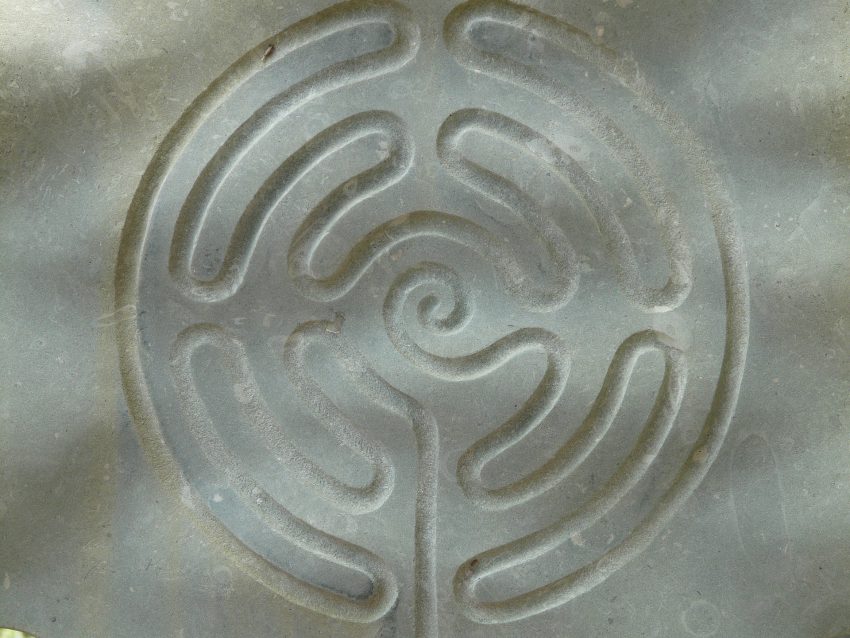Every Monday our PTS community worships in the tradition of Taizé. For those who are unaware of this tradition, it is a service with roots in an ecumenical community in France and features repeated song, prayer, Scripture, and silence. We started worshipping in this way every Monday two years ago as part of a number of changes in our chapel program. We moved away from a more faculty-driven program into a more student-driven model. It is certainly still a work-in-progress, much like our personal and communal lives together. No matter how much we may think otherwise, we have never really arrived. God is always changing us. This is reality in our lives, as well as our chapel program.
The faculty members in charge of this transition wrote periodic e-mails to the campus about how this change would enrich our lives together, even if some of the styles of worship made us uncomfortable. We were encouraged to participate and allow ourselves to grow. These e-mails were clearly written for me. I was so angry the first year about these changes. My first year of seminary I felt like chapel had a rhythm and it grounded me as I navigated my life as a student, attempting to balance it with parenting small children. And, still, many of the memorable and challenging sermons of my lifetime were heard in chapel during that time. Chapel was my favorite part of the day. Well, aside from lunch. Then they had to go and change it. Why? And to me, it was a hot mess. I never knew what to expect. I like to think I am open to the Spirit, but I was very resistant to the changes. I also happened to have a baby during second year, so I was given the grace to process in solitude as I grumbled to God about how I felt like PTS had been led astray by some evil spirit. It sounds harsh, but I was a tad bit angry.
My third year, I started coming around, partly due to Taizé, but mostly due to the fact that I realized most of my friends were graduating and that chapel was one time I could see them regularly. I still felt apprehensive when we sang songs I thought were too contemporary, became nervous when speakers were too personal, and disliked how we were always moving the chairs around. But I pressed on.
This year, though, it all came together for me. In a moment of revelation, where God once again revealed to me the obvious, I sat in the realization of my own selfishness. Worship is not about me. Like I said, this was a revelation of the obvious, which is often how revelation happens for me. Obviously, this was something I knew, but it was revealed to me through my experience of Taizé this year.
The service features the first round of song led by a cantor, and we are blessed at PTS to have many talented musicians and singers. I had prepared myself to be emotional at this particular service because I knew one of my favorite professors would not be there, as he has moved on to another very fortunate institution, but I hadn’t prepared myself for how emotional I would be about all of my friends who had moved on. As the cantor finished the first round, I sat thinking about how the cantor had been my daughter’s first teacher at the PTS Playroom and how thankful I was for this institution and community for nurturing my gifts, my family, and those who surrounded us during our time here. When I looked up, though, I realized that the cantor was not the person I had been thinking of. That person graduated last year.
Instead of feeling foolish, though, I praised God for the revelation that this is the point of worship. Not to confuse two clearly different people, no. But to remind us of the wider community of faith, the larger story that we are part of. Suddenly, my mind was moving on to the children who had performed in the Christmas play, the alums who had attended lectures and other events, the memorial service offered for a fellow student’s stillborn son, the academic awards given to well-deserving students, all these things in this place offered as worship and thanksgiving to the God who became part of our world, died, rose, and ascended into heaven.
Taizé (or something like it), I think, offers a way for communities in constant transition, like a seminary, to remain grounded and connected to a larger story. It allows us to reflect, weekly, through its predictable rhythm, on the changes that we all endure in our lives. And it allows a space for those who are a little less comfortable with the phrase “varied worship experiences” to remain grounded and maybe, just maybe, allow themselves to open up to the rich and wonderful expanse of God’s love through worship in the wider church.
Written by Shana Hutchings, Senior MDiv student

